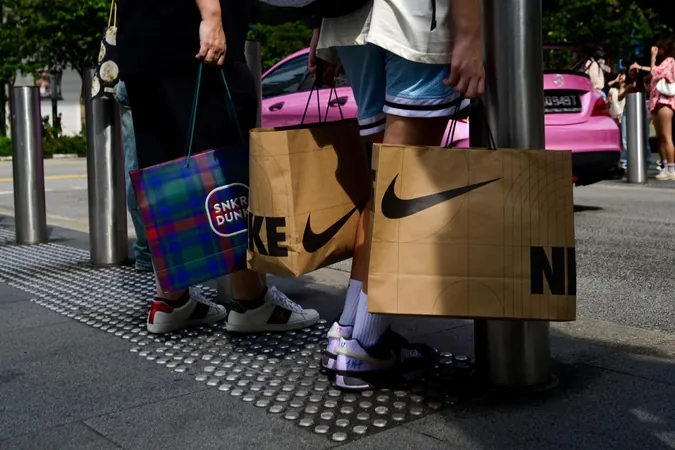
Can the ‘No Buy’ Challenge Transform Your Finances?
2025-01-25
Author: Sarah
As the initial excitement of a new year begins to fade, a growing trend among millennials and Gen Z has emerged on social media: the 'No Buy 2025' challenge. This movement poses a compelling question: in the wake of a few years marred by pandemic-driven 'revenge spending,' can this initiative help people gain firmer control over their finances?
At its core, the 'No Buy' or 'No Spend' challenge encourages participants to refrain from making non-essential purchases for an extended period. The rules can be tailored to fit individual lifestyles – many participants still allow for haircuts or essential items – but the objective remains the same: drastically cut discretionary spending.
Numerous success stories are circulating, illustrating how engaging in the 'no buy' challenge leads to significant shifts in both consumption and savings habits. However, it's important to acknowledge that maintaining such commitments is often more difficult than anticipated.
Instead of a dramatic overhaul of spending habits, a more sustainable approach is to gradually implement small changes. For instance, someone aiming to rein in their spending could choose to increase their monthly retirement contributions, which naturally reduces the funds available for everyday purchases. Similarly, if the goal is to eliminate debt, it may be more effective to target one non-essential expense rather than attempting to cut out all spending cold turkey.
In a personal experiment, I took on the 'no buy' challenge back in February 2019, a month known for being the shortest. I documented my journey on social media, using it as an opportunity for accountability and education. I allowed spending on essential bills, groceries, and even a small weekly budget for social activities, but I strictly banned expenses such as coffee runs, ride-sharing, and dining out.
What I learned during this period was profound; buying habits are often tied to deeper emotional needs. My desire for that daily coffee was not merely about caffeine; it was about the interaction and socializing that accompanied it, especially as a remote worker. The value of stepping out, breathing fresh air, and engaging in conversation was as significant as the actual purchase.
Navigating social interactions without spending money was one of the most challenging aspects of this challenge. While it’s possible to enjoy free activities with friends, maintaining these relationships can get tricky. Friends may not always be willing to participate in your budget cuts, and over time, these constraints could lead to feelings of isolation, thereby impacting mental well-being.
Additionally, social pressures can compound financial challenges. Many people feel obligated to spend on friends’ celebrations—birthdays, weddings, or concerts—that can lead to unnecessary financial strain. It's crucial to recognize these situations and develop healthy boundaries around spending, ensuring that you maintain control over your finances.
Without careful planning, embarking on a 'no buy' challenge can result in feelings of deprivation, ultimately leading back to a spending binge once the challenge concludes. This cycle can quickly transition from 'No Buy 2025' to 'Spending Spree 2026' if not managed thoughtfully.
For anyone considering a 'no buy' challenge, it's essential to start with a deep analysis of your current spending patterns and motivations. Understanding your spending urges can help you identify genuine needs and craft a budget that promotes long-term financial stability rather than a temporary cash influx.
This introspective process may be the key to not only weathering today's financial hardships but also ensuring a secure financial future. Could embracing a 'no buy' philosophy be your path to financial freedom? Let’s find out!

 Brasil (PT)
Brasil (PT)
 Canada (EN)
Canada (EN)
 Chile (ES)
Chile (ES)
 Česko (CS)
Česko (CS)
 대한민국 (KO)
대한민국 (KO)
 España (ES)
España (ES)
 France (FR)
France (FR)
 Hong Kong (EN)
Hong Kong (EN)
 Italia (IT)
Italia (IT)
 日本 (JA)
日本 (JA)
 Magyarország (HU)
Magyarország (HU)
 Norge (NO)
Norge (NO)
 Polska (PL)
Polska (PL)
 Schweiz (DE)
Schweiz (DE)
 Singapore (EN)
Singapore (EN)
 Sverige (SV)
Sverige (SV)
 Suomi (FI)
Suomi (FI)
 Türkiye (TR)
Türkiye (TR)
 الإمارات العربية المتحدة (AR)
الإمارات العربية المتحدة (AR)